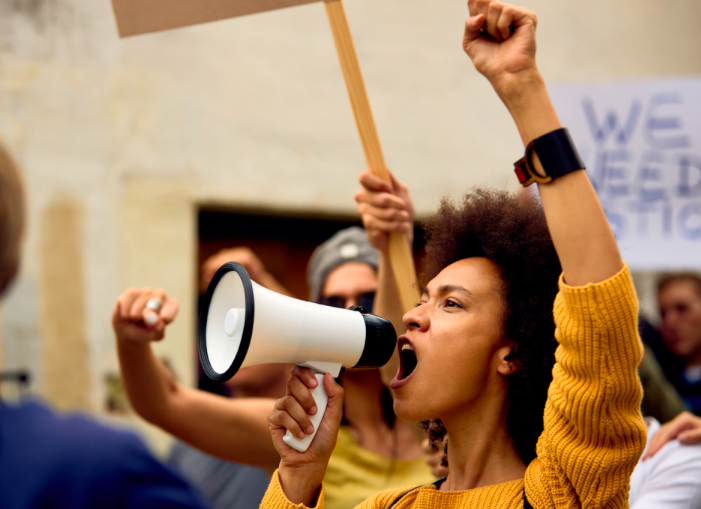


The British Youth Council (BYC) reached out to Ubele, as one of their partner organisations, to run a workshop on the history of anti-racism from a youth perspective. This was for a group of young people who were on a leadership programme that were being trained to create their own social action projects.
A member from Ubele’s Young Emerging Leaders Collective, Leonie Mills, was requested to take on this project. As a budding facilitator with some experience in hosting previous Ubele sessions, it was a good opportunity to engage in community work.
The topic of the history of anti-racism is a vast one, which is more poignant during this time of uprisings and protests across the world.
During Black History Month (BHM) there has been a tendency to rely and focus on the history of activism and campaigning by those in the United States. This session wanted to specifically explore work that had taken place within the UK. This was to showcase “unknown” historical events but also highlight activists during the 20th century.
The session was split into three sections, the first section was detailing my journey and experiences with activism and campaigning. The second section looked at four events, the 1958 Nottingham riots, 1958 Notting Hill riots, the Bristol Bus Boycott and the murder of Stephen Lawrence. We then proceed to explore three British activists Olive Morris, Darcus Howe and Avtar Jouhl. Lastly the final section was interactive where participants were encouraged to share their views and thoughts answering three questions.
Working with the young people from the ages of 13-21 brought up some interesting responses to the session. They came from a variety of backgrounds and places within the UK. The majority of them hadn’t heard of these events nor these activists. Which is unsurprising when the curriculum generally fails to include these things within history or even in BHM.
1) Lived experiences is a key factor in what motivates young people seeking to do change.
Unfortunately, a lot of them had witnessed a racially motivated violent act against someone from an ethnic minority community but the issue was that the perpetrator didn’t face any criminal convictions. This clear display in a lack of institutional support motivated them to seek out avenues on how to protect and gain equality within justice.
2) The issues of summer 2020 had a large impact on their views.
With the virality of the George Floyd incident and the spark in worldwide protests, it influenced the way they interacted with those around them. Many had conversations within schools among their peers about how it made them feel. A few even shared instances of when they confronted peers about why opposing #BLM or saying #AllLivesMatter was counterproductive and racist.
3) The importance of finding a like-minded community.
Quite a few were situated in cities and towns that didn’t have large diverse populations, this meant that they were “the only one” of something in their school. Being able to find and share with this group within the BYC was important to them. There were able to identify the similarities and commonalties in their experiences that they may not have in their everyday. The virtual group has allowed connections to be formed with people that they wouldn’t ordinarily have a chance to meet with,
It was an honour and a pleasure to have exposed these young people to an important and relevant history of anti-racism which they said they enjoyed learning.
Leonie Mills